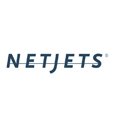Pilots and job satisfaction

We all measure job satisfaction both in financial terms and in how much we enjoy our jobs. And while most pilots venture into the world of aviation out of a long held passion for flying, they are not immune from the lure of a job offering better financial rewards.
In April this year, we conducted a detailed research study amongst pilots – across the aviation spectrum. The findings gave a detailed insight into their working lives and motivations. One message did come out loud and clear: Pilots in private aviation enjoy their flying more, but are not financially rewarded as well as their counterparts in the airline industry – both in terms of their salaries and in the benefits they receive.
This is a potential concern when a widely-predicted shortage of pilots in the 10-15 year pipeline will mean different sectors of aviation are fighting it out for the best talent. Private aviation will find it hard to compete with the deeper pockets of airline recruitment campaigns and this could have an impact on post-recession growth in private aviation.
Many in the industry are already calling on industry organisations such as EBAA and BACA to investigate practical solutions, such as Standard Operation Procedures (SOPs), Operator Proficiency Checks (OPCs) and pilot line checks to be standardised for a specific aircraft type. This would allow pilots to be shared between co-operating companies for commercial flights. A win win for both pilots who want to fly more and aircraft operators who are in desperate need to reduce operating costs.
And taking more of a long-term view, corporate aviation must review and improve how it communicates with prospective pilots – for example by actively promoting ‘private flying’ careers at training organisations. An industry-wide crew benefit scheme would help further to recruit and retain pilots in private aviation, as opposed to the more obvious route of an airline career.
Below are some of the key research findings. Or read the full report: PrivateFly Pilot Poll 2012.
Pilots in corporate aviation enjoy their flying more and feel more secure in their jobs…
- Over half of corporate aviation pilots (56%) describe their work as “very stimulating and varied” (versus only 25% of airline pilots), with a further 38% enjoying “some variation – which keeps it interesting”. Over a quarter of airline pilots find their flying “generally the same day to day” or “repetitive and dull”.
- Private jet pilots also have more responsibility in the air with 85% of describing their operational control on a flight as either “significant” or “total”, versus only 38% of airline pilots saying the same. 18% of airline pilots have “very little” operational control, with most decisions made by operations staff.
- Corporate aviation pilots feel slightly more secure in their jobs with 28% describing their roles as “very secure” versus a slightly lower proportion of airline pilots (23%). 8% of airline pilots believe their roles are “not at all secure”, versus just 4% of corporate aviation pilots.
…but are paid less and receive fewer benefits
- Despite their higher levels of job satisfaction, corporate aviation pilots appear to enjoy lower levels of remuneration, regardless of age and experience.
- While the most common annual salary bracket for both corporate aviation and airline pilots was £40,000 – £70,000, over 80% of airline pilots earn in this bracket or above, versus 67% of corporate aviation pilots. 23% of airline pilots earn over £100,000, whereas over a quarter (27%) of corporate aviation pilots earn £40,000 or less.
- The difference in benefits was even more significant with just a quarter (26%) of corporate aviation pilots enjoying a company pension plan (54% for airline pilots) and 12% a company share scheme (versus 22% of airline pilots). Unsurprisingly the majority (68%) of those flying for airlines benefit from subsidised flights, whereas only 9% of private jet pilots receive any kind of flight discounts. Over a third of corporate aviation pilots (38%) said they receive no company benefits at all.
- In one economic ray of light for the corporate aviation pilot, their remuneration appears to be moving in a more positive direction: 35% have received a pay increase of some kind in the last 12 months, versus only 26% of pilots across other sectors. And just 13% had seen their earnings reduce in the last year, versus 20% of airline pilots.
Family background plays a stronger role in the motivation of corporate aviation pilots and they are more likely to have been in the cockpit for their whole career
- 20% stated a key reason for becoming a pilot was because their father or other family member had the same career. This was only a motivating factor for 13% of pilots who fly for airlines.
- A significant majority of corporate aviation pilots (72%) have always been pilots as their main career choice. 42% of airline pilots had held a different main job before becoming a pilot, in a variety of roles from sales to engineering.
Related content

10 rules of private jet-iquette

NetJets Pilot Redundancies in France & Belgium



